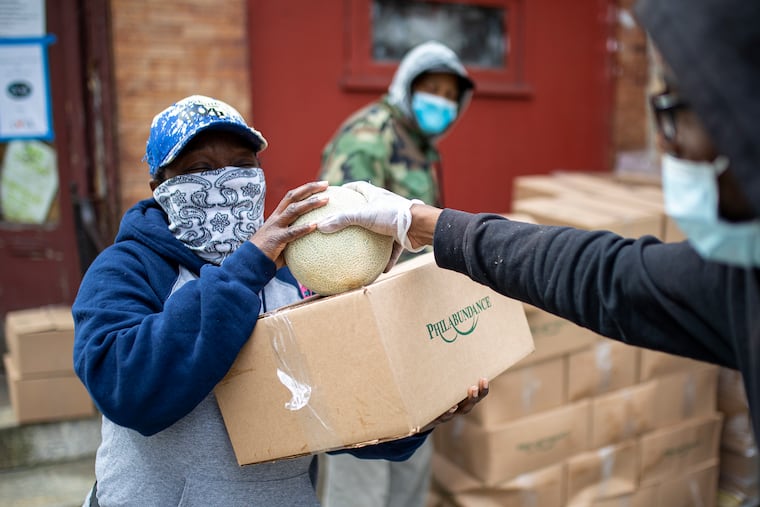Charitable organizations can’t be the only ones working to solve hunger and housing crises | Opinion
It is essential that the federal government play a leading role in ending and preventing hunger and homelessness.

Each of us has been affected by the COVID pandemic. Among the hardest hit are the economically vulnerable, including those who are homeless or near-homeless, and those struggling with food insecurity.
Even in ordinary times (if such times exist), Philadelphians are working hard and struggling every day to fill their refrigerators or to put roofs over their heads. During the pandemic, these struggles have been hard to ignore: longer food lines and homeless encampments are among the obvious manifestations. Meanwhile, high rates of unemployment and small business closings have been adding to the already high numbers of hungry and homeless Philadelphians — and throughout the country.
We are all yearning for the pandemic to ease and the economy to bounce back. But we must seize the moment and work to create a stronger economy that ensures all people have real opportunities to thrive. Nonprofits have been working on the ground in Philadelphia and around the nation toward this goal — but that success depends on the full engagement of government at every level.
Nutritious food and affordable housing cannot be left to charitable organizations alone. It is essential that the federal government play a leading role in ending and preventing hunger and homelessness. Federal investment can transform the lives of individuals, families, and communities.
Our legislators in Washington, D.C. must act with urgency. Short- and long-term relief bills, passed by the House of Representatives, sit stuck in the Senate. One is the HEROES Act, which provides critically needed rental assistance and important increases in nutrition programs like SNAP. Another is HR 2, a massive infrastructure bill designed to ensure that people have the jobs and income that can provide food and shelter. Rep. Dwight Evans has recently introduced the Making Housing Matter Plan, and we’re hopeful that will assist vulnerable homeowners and renters. It’s all about the basics: People cannot survive without food on their table and a roof over their heads.
Just as nonprofits and communities must work together to address increased need during this pandemic, we need our federal government to do the same. People everywhere are struggling. We need policies, programs, and resources that will prevent families from falling into homelessness and poverty during this pandemic, and help them thrive when it is over.
We have struggled with issues of poverty and homelessness before. But Federal Reserve Chairman Jerome Powell has noted, “The economic shock caused by the coronavirus pandemic has exposed a range of ‘troubling inequalities,’” most of which have predated the current crisis. No one organization or solution will fix the challenges we face — which is why we need our leaders to step up and pass bills that will sustain our friends, neighbors, sisters, and brothers both now and into the future.
A crisis is a time when communities come together. No one wants to wait in a line for food or stay in a temporary shelter. Even in the midst of this painful economic episode, the United States has more than enough food, housing, and resources to prevent every citizen from being hungry, homeless, poor, lacking health care, or stuck in poor educational systems.
The COVID pandemic shows us, though, that economic security can be elusive. Project HOME and Philabundance are committed to working together and with partners to ensure that all people and families have a safe permanent home and food on their table. We call on our congressional representatives to do the same. When all of us, including local, state, and federal governments, play our part, we can put the nation on the road to true economic healing.
Loree D. Jones is the chief executive officer of Philabundance. Sister Mary Scullion is the president and executive director of Project HOME.